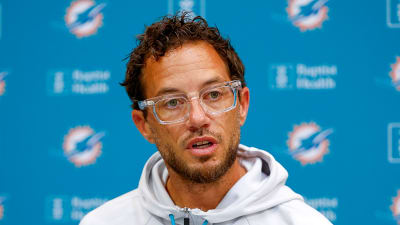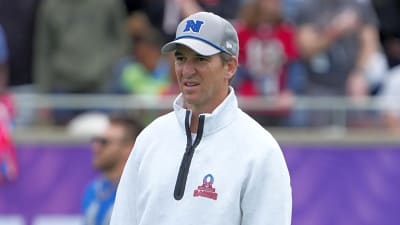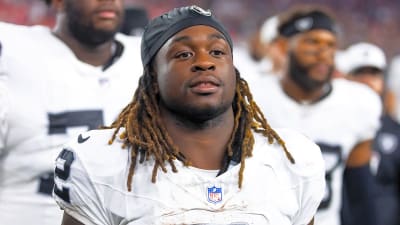- Home
- Quizzes
- My Quiz Activity
- Newsletters
- MY FAVORITES
- Add Sports/Teams
- SPORTS
-
NFL
- NFL Home
- Arizona Cardinals
- Atlanta Falcons
- Baltimore Ravens
- Buffalo Bills
- Carolina Panthers
- Chicago Bears
- Cincinnati Bengals
- Cleveland Browns
- Dallas Cowboys
- Denver Broncos
- Detroit Lions
- Green Bay Packers
- Houston Texans
- Indianapolis Colts
- Jacksonville Jaguars
- Kansas City Chiefs
- Las Vegas Raiders
- Los Angeles Chargers
- Los Angeles Rams
- Miami Dolphins
- Minnesota Vikings
- New England Patriots
- New Orleans Saints
- New York Jets
- New York Giants
- Philadelphia Eagles
- Pittsburgh Steelers
- San Francisco 49ers
- Seattle Seahawks
- Tampa Bay Buccaneers
- Tennessee Titans
- Washington Commanders
-
MLB
- MLB Home
- Athletics
- Arizona Diamondbacks
- Atlanta Braves
- Baltimore Orioles
- Boston Red Sox
- Chicago White Sox
- Chicago Cubs
- Cincinnati Reds
- Cleveland Guardians
- Colorado Rockies
- Detroit Tigers
- Houston Astros
- Kansas City Royals
- Los Angeles Angels
- Los Angeles Dodgers
- Miami Marlins
- Milwaukee Brewers
- Minnesota Twins
- New York Yankees
- New York Mets
- Philadelphia Phillies
- Pittsburgh Pirates
- San Diego Padres
- San Francisco Giants
- Seattle Mariners
- St. Louis Cardinals
- Tampa Bay Rays
- Texas Rangers
- Toronto Blue Jays
- Washington Nationals
-
NBA
- NBA Home
- Atlanta Hawks
- Boston Celtics
- Brooklyn Nets
- Charlotte Hornets
- Chicago Bulls
- Cleveland Cavaliers
- Dallas Mavericks
- Denver Nuggets
- Detroit Pistons
- Golden State Warriors
- Houston Rockets
- Indiana Pacers
- Los Angeles Clippers
- Los Angeles Lakers
- Memphis Grizzlies
- Miami Heat
- Milwaukee Bucks
- Minnesota Timberwolves
- New Orleans Pelicans
- New York Knicks
- Oklahoma City Thunder
- Orlando Magic
- Philadelphia 76ers
- Phoenix Suns
- Portland Trail Blazers
- Sacramento Kings
- San Antonio Spurs
- Toronto Raptors
- Utah Jazz
- Washington Wizards
-
NHL
- NHL Home
- Anaheim Ducks
- Boston Bruins
- Buffalo Sabres
- Calgary Flames
- Carolina Hurricanes
- Chicago Blackhawks
- Colorado Avalanche
- Columbus Blue Jackets
- Dallas Stars
- Detroit Red Wings
- Edmonton Oilers
- Florida Panthers
- Los Angeles Kings
- Minnesota Wild
- Montreal Canadiens
- Nashville Predators
- New Jersey Devils
- New York Islanders
- New York Rangers
- Ottawa Senators
- Philadelphia Flyers
- Pittsburgh Penguins
- San Jose Sharks
- Seattle Kraken
- St. Louis Blues
- Tampa Bay Lightning
- Toronto Maple Leafs
- Utah Mammoth
- Vancouver Canucks
- Vegas Golden Knights
- Washington Capitals
- Winnipeg Jets
- NCAAF
- NCAAM
- Olympics
- Boxing
- Entertainment
- Lifestyle
- Golf
- MMA
- Soccer
- Tennis
- Wrestling
- Sports Betting
- More Sports
- RESOURCES
- My Account
- YB on Facebook
- YB on Twitter
- YB on Flipboard
- Contact Us
- Privacy Policy
- Terms of Service
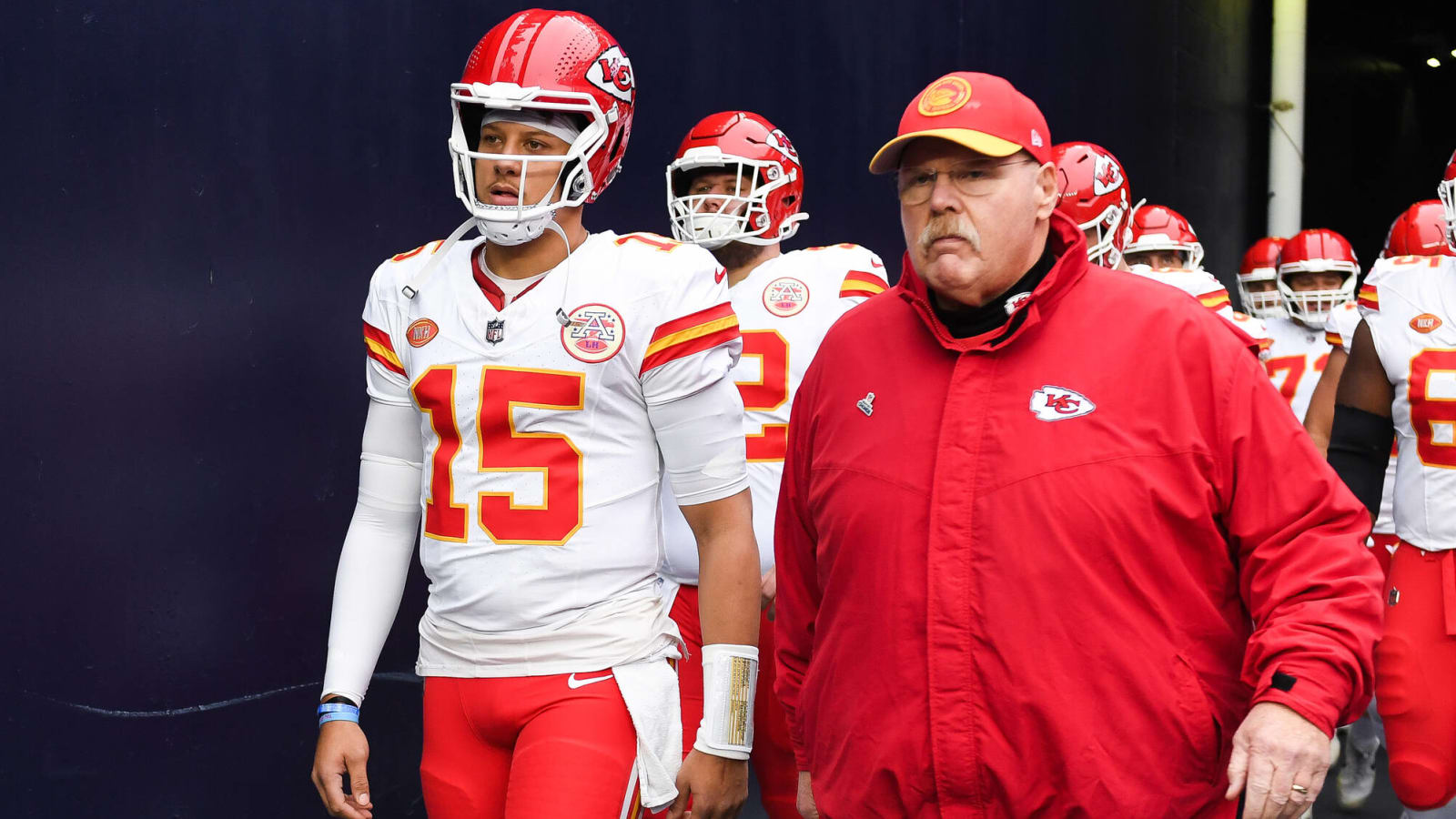
Every NFL team that made five straight playoff appearances
Several NFL franchises have strung together five consecutive postseason appearances. Some used that real estate to form dynasties, while others reached Super Bowls. Various teams could not clear January barriers but were still key factors for lengthy stretches. Here are the teams who were part of five or more playoff fields in a row.
Cleveland Browns, 1950-55
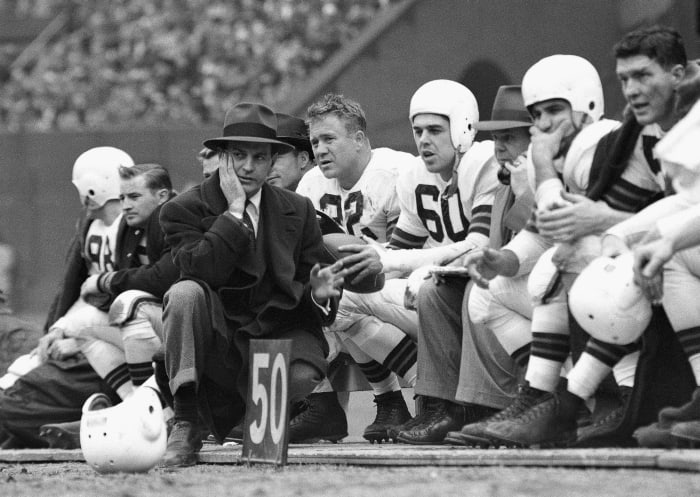
Depending on where you stand on the All-American Football Conference, Cleveland's streak could be at 10. Spawned in 1946, the Browns made 10 straight championship games -- the first four coming in the AAFC. Upon joining the NFL in 1950, Paul Brown's team became a first-season champion after outscoring the record-setting Rams offense in an underrated classic. Armed with cutting-edge techniques that would reshape the NFL, the Browns won two more titles during the storied Brown-Otto Graham partnership. The Bears of the 1940s qualified for four straight title games. No other pre-Super Bowl team is close to Cleveland's staggering mark.
Dallas Cowboys, 1966-73
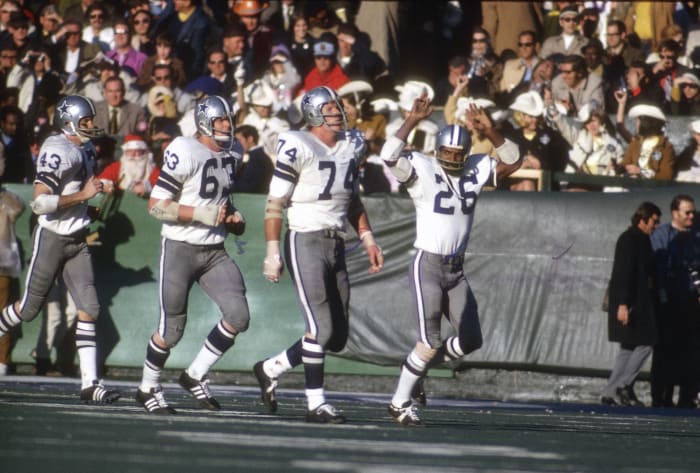
The Cowboys nearly halted the Lombardi Packers' title count at three. While Tom Landry's team could not prevail in the 1966 or '67 NFL championship games, the latter being quite cold, the master tactician launched one of the longest-running dynasties in sports history. Don Meredith, Craig Morton, and Roger Staubach steered the ship during the early waters, but Dallas rostered numerous Hall of Famers -- from Bob Lilly to Olympic gold medalist Bob Hayes to hooper-turned-tackle Rayfield Wright. After the Cowboys repeatedly fell short, their 1971 team -- in Staubach's first crack at QB1 work -- held the Dolphins without a TD in Super Bowl VI. That feat did not recur for nearly 50 years.
Miami Dolphins, 1970-74
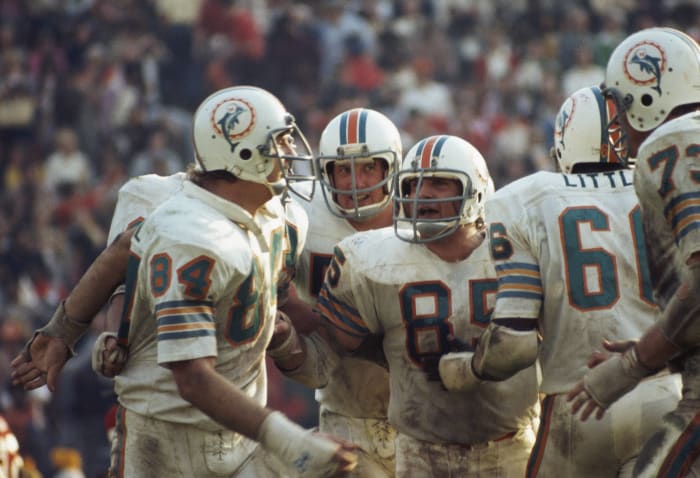
The Colts allowing Don Shula to take over the Dolphins led to a quick power shift. Shula's bunch ventured to Super Bowls in his second, third and fourth seasons. Powered by a multifaceted run game that paced the NFL for four years, the Dolphins won back-to-back titles. You may have heard about their 1972 team's record, but their 1973 outfit beat far better competition and dominated in Super Bowl VIII. In addition to Larry Csonka and Mercury Morris, the Dolphins' No Name Defense led the NFL during both of the championship seasons. This formula created the AFC's first dynasty, delaying the Steelers' ascent.
Oakland Raiders, 1972-77
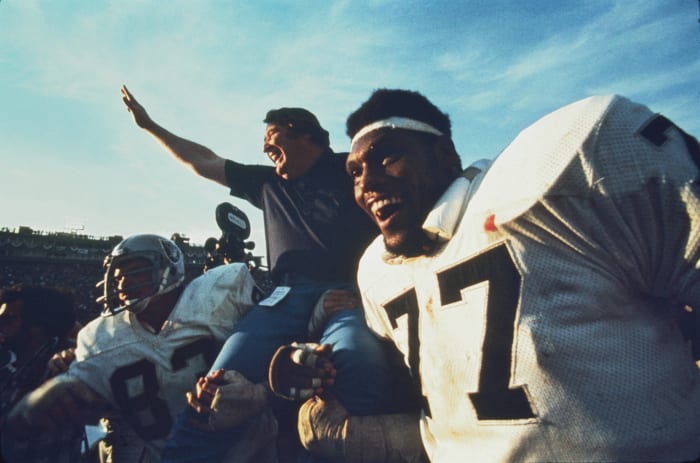
Had the Raiders played in the NFC, their Super Bowl count is likely higher. As it stood, John Madden's teams ran into all-time competition in the Dolphins and Steelers. Still, Oakland went 66-16-2 from 1972-77 and appeared in five AFC title games. Powered by an O-line that at one point started four Hall of Famers, Madden's storied squads could consistently claim runner-up status behind Miami or Pittsburgh. That changed in 1976 when the Raiders went 16-1 and dominated the Vikings in Super Bowl XI. The Raiders were good at playing in games with names as well. "The Immaculate Reception," the "Sea of Hands" and the "Ghost to the Post" contests define their legacy.
Minnesota Vikings, 1973-78
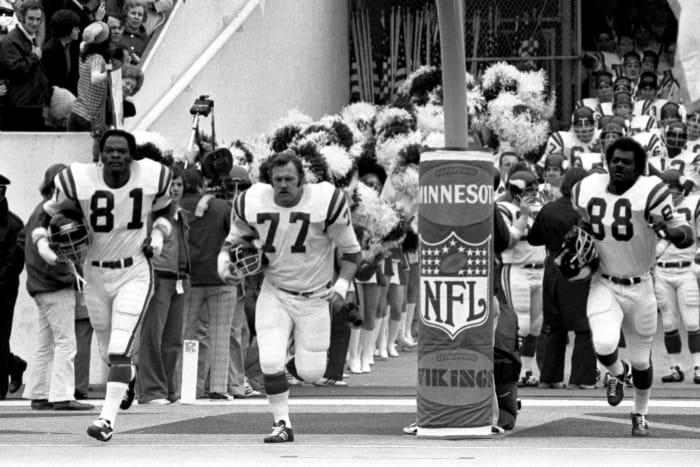
The Vikings rectified a mistake in 1972, reacquiring Fran Tarkenton from the Giants, and re-established themselves as a top-tier team. Behind Tarkenton and their Purple People Eaters defensive line, which housed Hall of Famers Alan Page and Carl Eller, the Vikings went to three Super Bowls during this span. While they ran into all three of the teams engaged in an AFC arms race (the Dolphins, Steelers, and Raiders), this was a formidable squad. Tarkenton retired miles ahead on career passing lists, and the Vikings won six straight division titles and went toe-to-toe with the better-remembered Cowboys teams of this era.
Pittsburgh Steelers, 1972-79
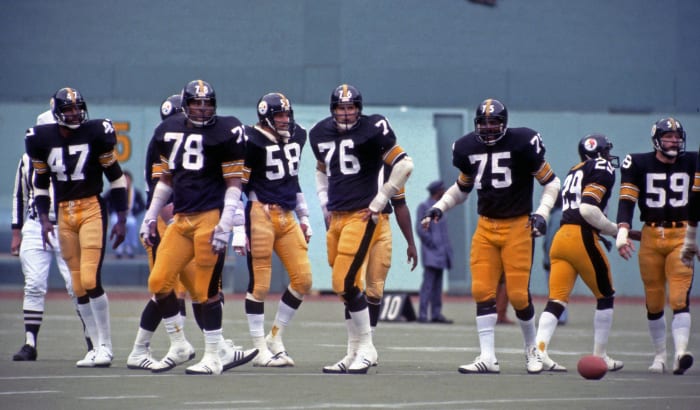
Boasting Hall of Famers at every position group but tight end, the Steelers outflanked their rivals during this nearly unparalleled run. While keeping this group together was obviously easier than modern dynasty hopefuls have it, the Steelers dominated defensively to a point the NFL changed the rules. After the "Mel Blount Rule" unshackled air attacks, Terry Bradshaw and his Canton-bound receivers lit up the league and won third and fourth titles. Pittsburgh boasted as complete a nucleus as any team in NFL annals. Five Hall of Famers resided on the Steel Curtain, and five more were present on offense. The Steelers maximized their championship window.
Los Angeles Rams, 1973-80
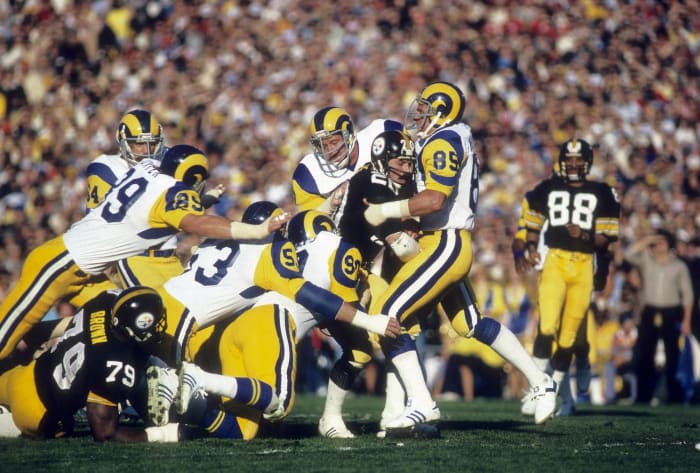
Although the Rams did not win the NFC arms race with the Cowboys and Vikings in the 1970s, they crafted a unique run near the top of the conference. While Roger Staubach and Fran Tarkenton guided the other playoff mainstays, the Rams did not find quarterback stability. They did bolster their roster by trading some (Roman Gabriel, John Hadl), but the likes of James Harris, Pat Haden, and Vince Ferragamo could not rival the other powers' Hall of Famers. Still, Los Angeles' Jack Youngblood-led defense ranked in the top five for seven straight years. This stretch's only sub-10-win team -- in 1979 -- was the only one to make a Super Bowl.
Dallas Cowboys, 1975-83
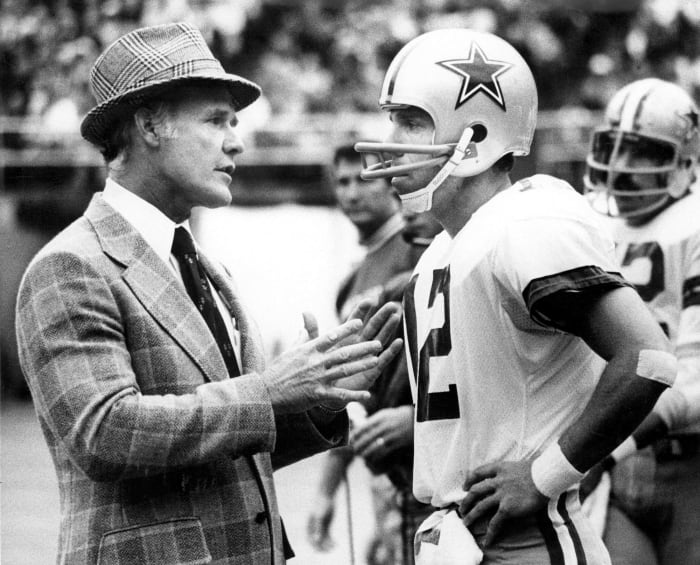
Rivaling Bill Belichick's Patriots for consistency, Tom Landry's Cowboys qualified for smaller playoff brackets in 17 of 20 seasons from 1966-85. The second leg of Landry's dynasty revolved around Staubach, who crafted a Hall of Fame resume despite not being a full-time QB1 until age 31. The Cowboys went to three Super Bowls from 1975-78, with feats from Drew Pearson and draft-day trade heist Tony Dorsett keeping Dallas elite. The Cowboys did not overtake the Steelers, but they kept going longer. Staubach successor Danny White had Dallas in the three NFC title games following Staubach's retirement. Were it not for an Eric Wright tackle on Pearson, the Cowboys give "The Catch" a new ending.
Miami Dolphins, 1981-85

Don Shula reminded the football world of his greatness here, as the Dolphins started this streak without Dan Marino. Riding the likes of David Woodley and veteran backup Don Strock, the Dolphins dueled with the Chargers in arguably the NFL's greatest game and advanced to Super Bowl XVII a year later. After Marino slid to the AFC champions in 1983, the Dolphins hit another gear. The all-time talent delivered the greatest passing season in NFL history in his 1984 sophomore slate, which ended with Miami in Super Bowl XIX, and had his team at 12-4 in 1985. Defensive issues led to a late-1980s Dolphins regression.
Chicago Bears, 1984-88

Known obviously for their 18-1 1985 takeover, which featured a still-elite Walter Payton and a generational defense, the Bears were present for much of the NFC's 1980s heyday. Chicago's 72 sacks in 1984 remain the NFL record, and the Bears went 14-2 in 1986 with better defensive numbers than their celebrated '85 squad. Unfortunately, Jim McMahon's health prevented the Bears from realizing their full potential. Injuries in 1984, '86, '87, and '88 forced Chicago's QB1 to miss 36 games across these seasons. McMahon's 1986 shoulder injury worsened after a preposterous Charles Martin hit, which derailed an intergalactic NFC title game against the 14-2 Giants.
Cleveland Browns, 1985-89
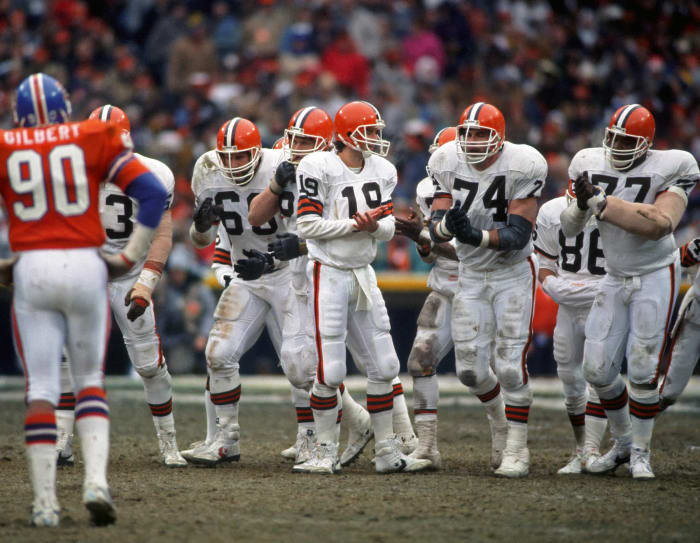
Crafty maneuvering to acquire a supplemental draft pick laid the foundation for this Browns climb. The team landing Bernie Kosar in the summer of 1985 led to the apex of modern Browns football. Riding its 1,000-1,000 rushing duo of Earnest Byner and Kevin Mack, an 8-8 Cleveland team nearly upset Miami in the 1985 playoffs. The 1986 Browns won an underrated double-OT game over the Jets and hosted the Broncos. John Elway KO'd not just this Browns team, but the next two that journeyed to the Super Bowl precipice. The Browns dodged the Super Bowl routs the Broncos endured, but the AFC Central team did not recover from its playoff shortcomings.
San Francisco 49ers, 1983-90
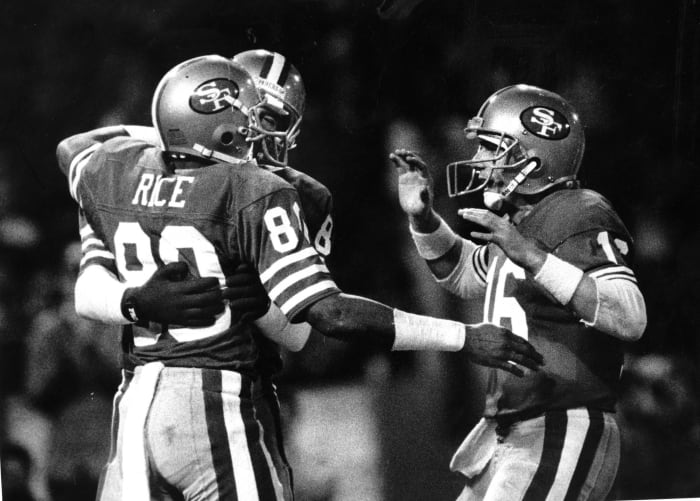
After going 3-6 in the 1982 strike season, the 49ers dizzied the NFL with their West Coast Offense. They paired the best modern offensive tactician with the era's premier quarterback and the greatest wideout in history. Bill Walsh and Joe Montana led the final pre-Jerry Rice team, 1984's 18-1 squad, to a Super Bowl XIX romp. Rice came via first-round trade and added a terrifying dimension to the 49ers, who may have been a Roger Craig fumble from threepeating in 1990. The 49ers peaked post-Walsh, outscoring their 1989 playoff opposition 126-26 under George Seifert. It is tough for any team to measure up to this 49ers run.
Houston Oilers, 1987-93
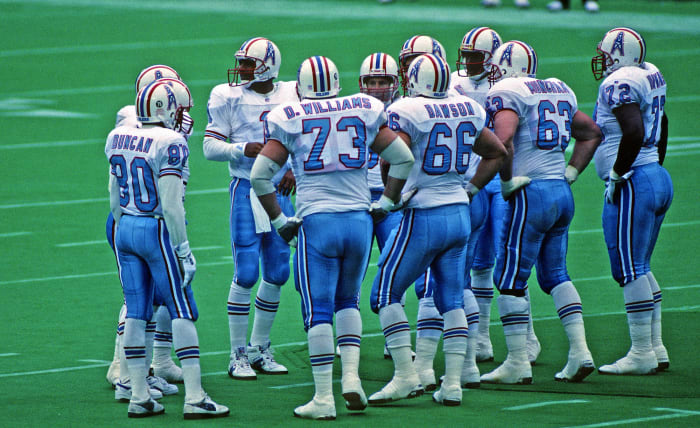
After Warren Moon's first three seasons inserted doubt about his trajectory, the future Hall of Famer ripped off this post-30 stretch. The Oilers' Run and Shoot attack produced gaudy numbers, and Canton-bound O-linemen Bruce Matthews and Mike Munchak did plenty to enable them. In the 1990s, the Oilers defense improved. That did not prevent this crew's common theme from recurring. Houston's Jerry Glanville- and Jack Pardee-led teams notched four combined double-digit win seasons but did not advance to an AFC title game. They also ended this period by blowing three two-score playoff leads, bottoming out in Buffalo with the worst postseason collapse ever.
Buffalo Bills, 1988-93
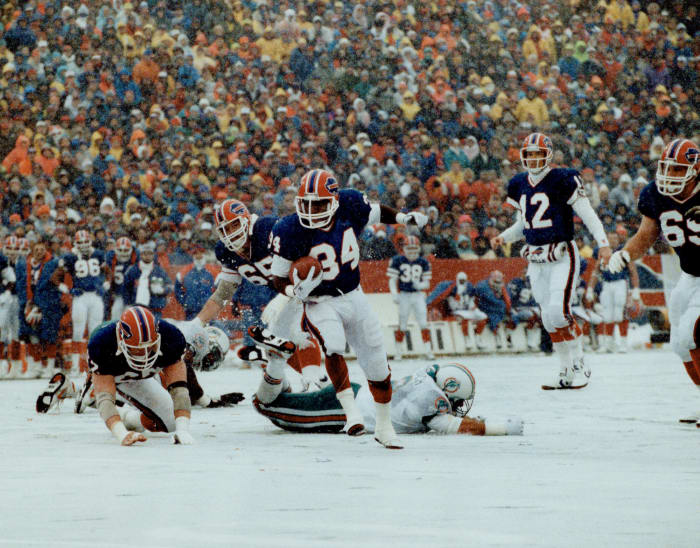
The AFC East changed hands a few times in the mid-1980s; a rebuilt Bills team soon seized command. Riding a combination of first-round picks (Jim Kelly, Bruce Smith), non-first-round stars (Thurman Thomas, Andre Reed), and the true prize of the Eric Dickerson trade (Cornelius Bennett), the Bills won five division titles and 10 playoff games in this span. The Super Bowls did not go their way, but from 1990-93, the Bills outscored AFC playoff opposition 295-145. In AFC title games, the margin was 120-33. These Bills are the only team to reach four straight Super Bowls. Only two other franchises have reached three straight.
Kansas City Chiefs, 1990-95
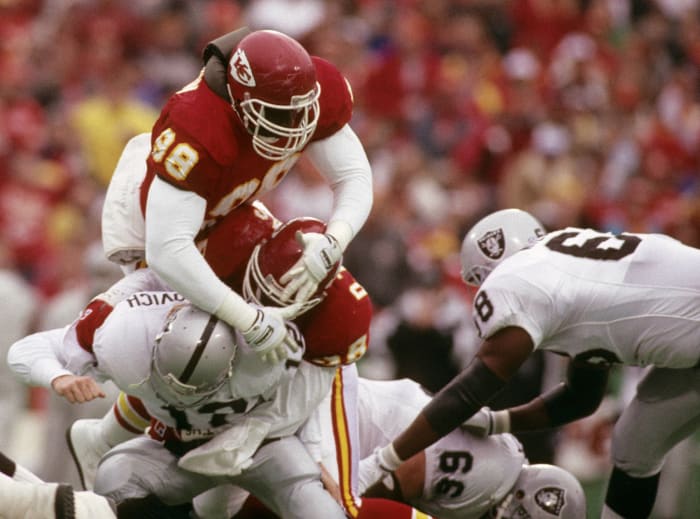
Lacking consistency in one key area, the Chiefs could not topple the early-'90s Bills dynasty. In the heart of their lengthy post-Todd Blackledge/pre-Patrick Mahomes period of avoiding first-round QBs, the Chiefs amassed this streak with four starting passers. Kansas City also won just two division crowns during this period. The first such year, 1993, featured Joe Montana and Marcus Allen renaissance seasons. The second, in 1995, saw a Derrick Thomas-led defense -- the heart of the Marty Schottenheimer teams -- rank first. The results for the Montana, Steve DeBerg, Dave Krieg, and Steve Bono teams did not vary wildly. No Super Bowl berths commenced.
Dallas Cowboys, 1991-96
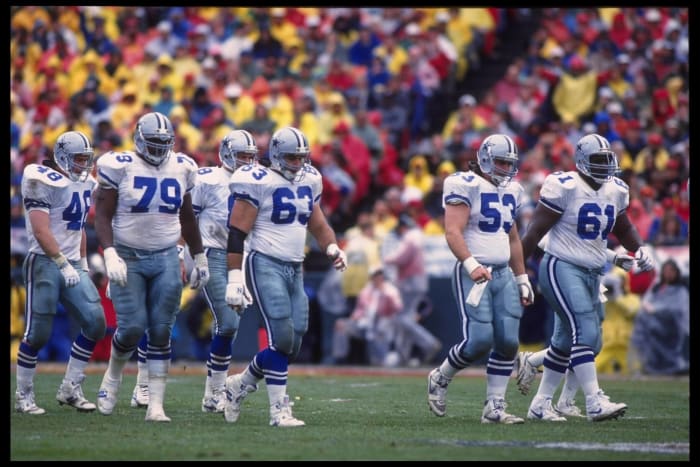
Flooding the All-Madden team annually, this dream roster made a genius out of Jimmy Johnson. The Cowboys' 1989 Herschel Walker trade accelerated a radical rebuild effort, sending the likes of Emmitt Smith and Darren Woodson to Dallas. From 1992-95, the Cowboys did not rank outside the top five on offense or defense. These Dallas O-lines housed six Pro Bowlers -- including Hall of Famer Larry Allen and Madden favorite Nate Newton -- to enable annually elite execution from the Troy Aikman-piloted offense. The Cowboys came close to winning four straight Super Bowls, and they helped ensure No. 3 would come by pilfering Deion Sanders from the 49ers in 1995.
Pittsburgh Steelers, 1992-97
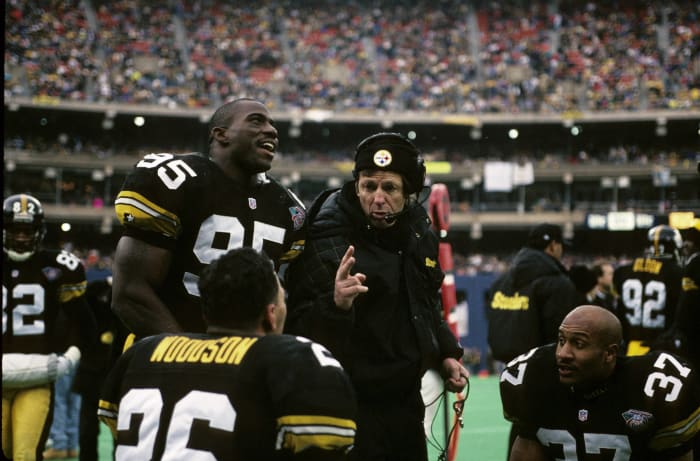
Bill Cowher guided the Steelers to the playoffs in his first six seasons, doing so despite middling quarterback play and offenses that lacked a No. 1 receiver for most of this stretch. Pittsburgh backed its Neil O'Donnell-quarterbacked offenses with its "Blitzburgh" defense, with mastermind Dıck LeBeau unleashing premier units during this period. Linebackers Greg Lloyd and Kevin Greene teamed with Rod Woodson to lead LeBeau's troops, and these seasons produced three AFC championship appearances and a Super Bowl bid. After O'Donnell left in 1996, the Steelers kept going with Mike Tomczak and Kordell Stewart at the controls.
San Francisco 49ers, 1992-98

Had the 1991 49ers not narrowly missed the playoffs, the Joe Montana-Steve Young transition plan would have produced 17 consecutive postseason berths. Part 2 lacked the ring volume of Part 1, but the 49ers of the 1990s did not have the systemic advantages their '80s teams did. Though the NFL was immersed in the West Coast Offense by the '90s, Young reached a monster apex by being the first post-merger QB to be named first-team All-Pro in three straight years. Jerry Rice remained elite well past 30, and a 1994 spending spree helped secure the 49ers their fifth title. The Cowboys won the decade's defining rivalry, but the 49ers took a few big games off them.
Green Bay Packers, 1993-98
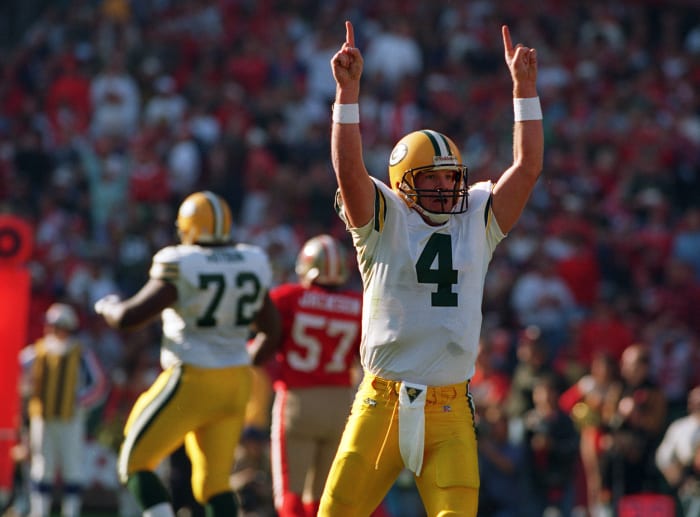
After Young's threepeat atop the QB ranks, Brett Favre took over with three straight MVPs. GM Ron Wolf shipping the Falcons a first-round pick for Favre in 1992 ended a rough two decades for the Packers, who wooed Reggie White in free agency's inaugural year (1993). White lasted six seasons in Green Bay; all six involved Pro Bowls and Packer playoff berths. The Packers pushed the Cowboys during their dynasty and thwarted the 49ers' efforts to recapture the NFC throne. Double-digit favorites in back-to-back Super Bowls, the Pack won the first of those before slipping up against the Broncos. Losing Mike Holmgren and Andy Reid in the 1999 offseason paused this run.
Minnesota Vikings, 1996-2000
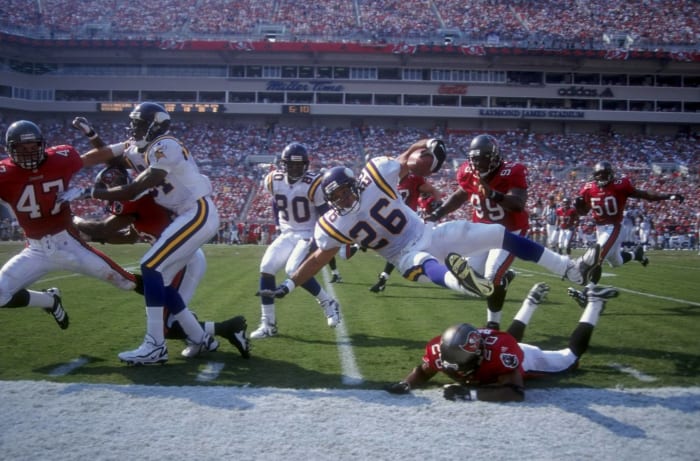
This Vikings core is known best for its historic near-miss when the Falcons denied Minnesota's 1998 record-setting offense a shot against Denver in Super Bowl XXXIII. Still, these Vikes sported top-end weaponry -- Cris Carter, Jake Reed, Robert Smith, and, eventually, Randy Moss -- and managed to keep the engine running despite a brigade of QBs passing through. Four passers -- Brad Johnson, Randall Cunningham, Jeff George, and Daunte Culpepper -- guided the Vikes during this period, mirroring Minnesota's 21st-century playoff blueprints. A 41-0 shellacking at the Giants' hands in the 2000 NFC title game ended this Dennis Green-led era.
Miami Dolphins, 1997-2001
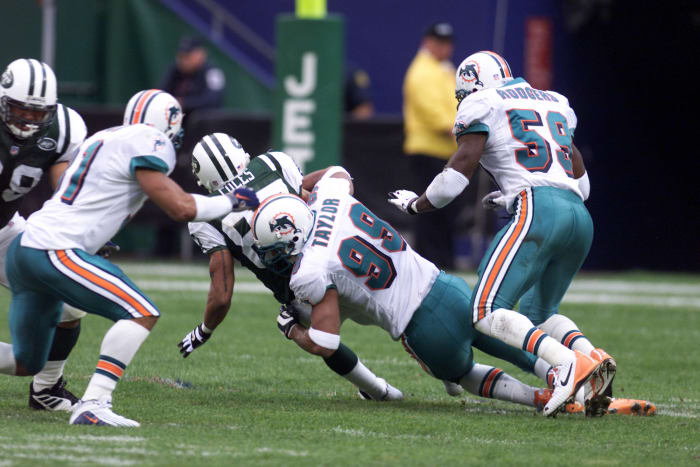
One of the lower-profile runs here, Jimmy Johnson and Dave Wannstedt's Dolphins were wild-card staples. In his final three seasons, a declining Dan Marino moved Miami into the postseason. Miami won two wild-card games as well. This bunch is better remembered for the divisional-round beatings it took -- 38-3 and 62-7 demolitions in Denver and Jacksonville, respectively. Jason Taylor and Zach Thomas helped the Jay Fiedler Dolphin editions make two straight playoff berths, with the first of those toppling Peyton Manning's Colts in Round 1. These Dolphins only won the AFC East once and could not reach a conference title game.
Philadelphia Eagles, 2000-04

Donovan McNabb persevered from the draft-day booing scene and became the conductor of consistently great Eagles teams. After falling to the Giants in the 2000 divisional round, the Eagles won the next four NFC Easts -- being the most recent team to repeat as NFC East champs -- and advanced to the conference title round in each season. Despite being saddled with a modest receiving corps for most of this span, McNabb made the Pro Bowl in each season and led the Eagles to 11 or more wins throughout the early 2000s. Philly's best shot came in 2004, with Terrell Owens behaving reasonably well, but Andy Reid's teams were back in the mix post-T.O. in the late aughts as well.
Indianapolis Colts, 2002-10
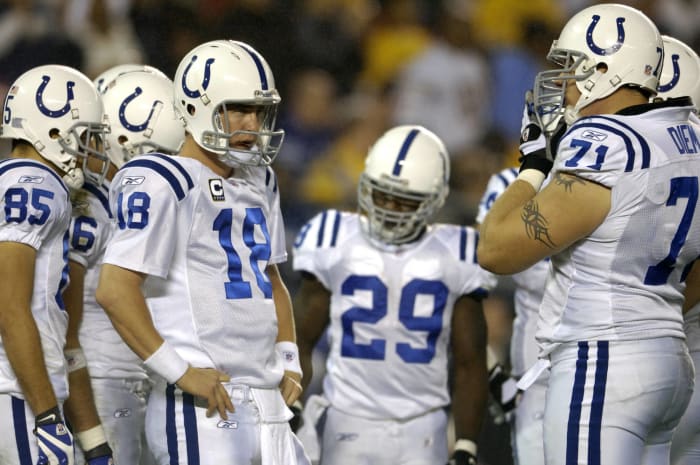
Gifted with a young superstar quarterback, the Colts went 6-10 in 2001. Tony Dungy steadied the ship upon arrival the following year, and Peyton Manning authored the most prolific run in QB history. Manning won four of his five MVPs during this stretch, and from 2003-09, Indianapolis won at least 12 games every year. Only two teams have done that. The Colts also started 13-0 in 2005 and '09. Marvin Harrison and Reggie Wayne became an all-time duo, and the Colts withstood Edgerrin James' exit, winning Super Bowl XLI behind Manning and a late-season defensive emergence. Manning's neck injury slammed this window shut not long after Indy's Super Bowl XLIV loss.
Seattle Seahawks, 2003-07

This space's issues with these troubling Seattle uniforms notwithstanding, Mike Holmgren's team took control of the NFC West during a shaky time for that division. While the aughts Seahawks twice won the division with a negative point differential, they also featured a high ceiling. Shaun Alexander beat out a quarterback who led his team to a 14-2 season (Manning) for the 2005 MVP award, and Seattle's Walter Jones-powered ground game rode to Super Bowl XL. Questionable officiating impeded the Seahawks that night, but they did won more playoff games during the Holmgren-Matt Hasselbeck partnership. After 2005, however, Seattle's narrow title window closed.
New England Patriots, 2003-07
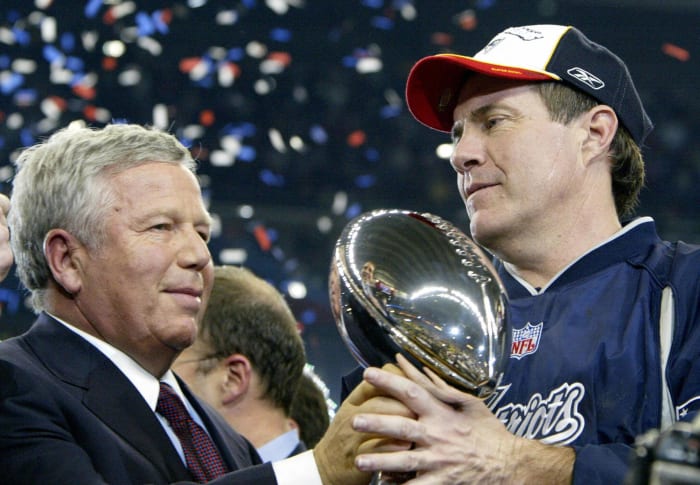
Pound-for-pound, it is difficult to match this five-year run. The 2002 Patriots went 9-7 and missed the playoffs; the '03 team authored a league-changing recovery effort. New England went 28-4 over the next two years, winning back-to-back Super Bowls. While Tom Brady became a perennial Pro Bowler later, Bill Belichick's Ty Law- and Richard Seymour-fronted defenses fueled these squads. Spygate happened, too, but Brady and Randy Moss helped the Pats veer away from that scandal via their record-breaking 2007. This would unquestionably be the greatest five-year surge in NFL history had the Giants not prevented 19-0 from coming to pass.
Baltimore Ravens, 2008-12
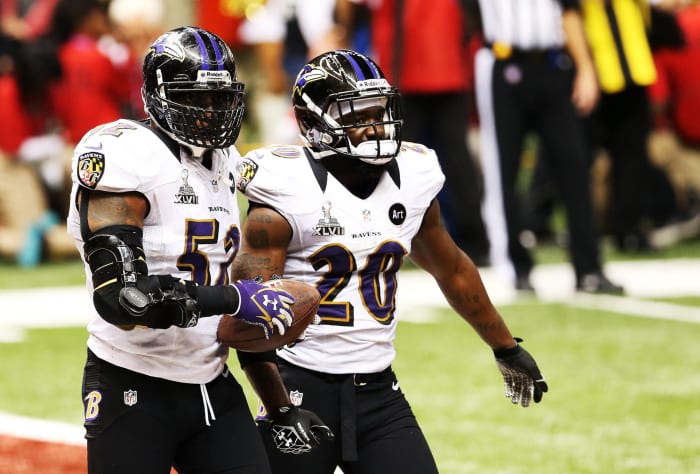
Like Bill Cowher nearly two decades prior, John Harbaugh revitalized a team out of the blocks. Following a 5-11 season in Brian Billick's finale, the Ravens found a quarterback capable of making its annually elite defense relevant. Ed Reed continued his greatest-safety-ever push, and Ray Lewis kept going into his mid-30s. These defenses helped Joe Flacco pilot the Ravens to six road playoff wins in his first five seasons. The Ravens only won the AFC North twice in this span, but they ousted the Patriots twice and survived a 49ers rally -- one a controversial conclusion stalled -- in the Harbaugh Bowl to cap an underappreciated Baltimore run.
Cincinnati Bengals, 2011-15
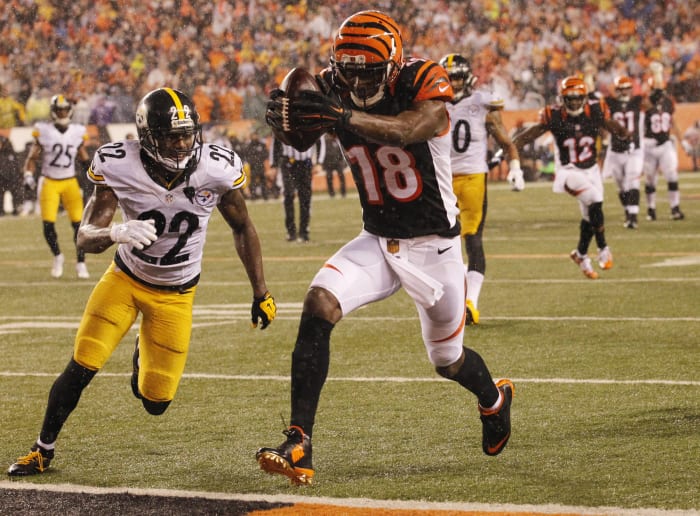
Like those Ravens, the Bengals of this period only won the AFC North twice. They still managed a half-decade worth of postseason cameos. Of course, Marvin Lewis' successful seasons are remembered for playoff failures. Cincinnati failed to score 17 points in each of its five wild-card losses, three of them being three-score defeats. The Bengals picked up the pieces well to rebound after the Carson Palmer standoff, using that trade to bolster their roster. And Andy Dalton's injury doomed the best of these teams, a 2015 squad gunning for a No. 1 seed. The Vontaze Burfict-Adam Jones rampage against Pittsburgh provided a dark finale for this perennial letdown candidate.
Denver Broncos, 2011-15
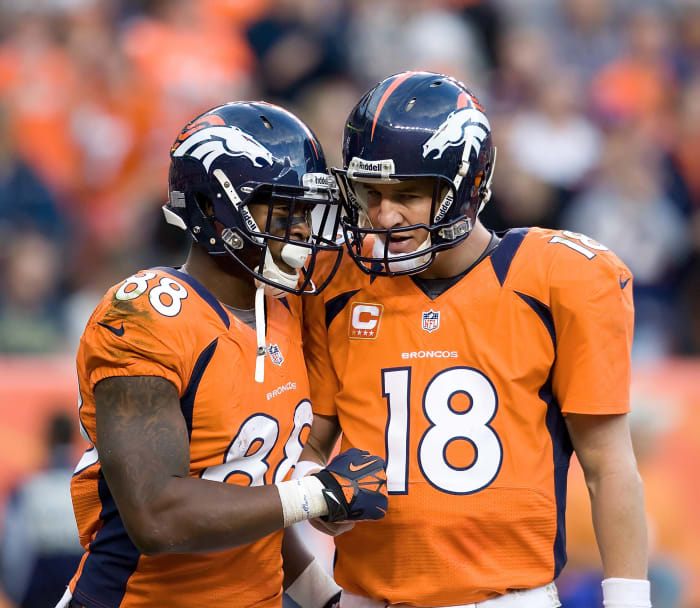
After their 2011 season -- the Tim Tebow cameo -- featured bizarre success, GM John Elway did not buy in and dumped his popular starter two months later. He did so shortly after winning the Peyton Manning sweepstakes. The legendary passer added a unique chapter to his legacy by transforming the Broncos into a power. The Broncos won the AFC West each season and beat the Patriots en route to two Super Bowls, doing so in remarkably different ways. Manning shredded the Pats in 2013, capping his record-smashing season, and Denver's Von Miller-led generational defense ousted New England in 2015 to carry its declining QB to a walk-off title.
Green Bay Packers, 2009-16
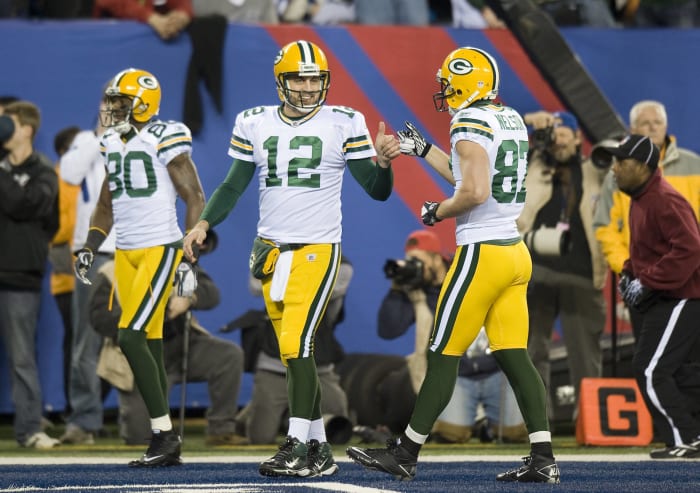
After an acclimation year in 2008, Aaron Rodgers quickly ascended to the NFL's mountaintop. In his third and fourth seasons as Green Bay's QB1, Rodgers delivered a masterful playoff slate to lift the team to its fourth Super Bowl title and then engineered a 15-1 season. The latter year started a trend of modern Packer playoff shortcomings, with management rarely splurging for sufficient defensive help. Green Bay's defense allowed back-to-back seasons to end after opponents -- the Seahawks and Cardinals -- won overtime coin tosses, but Rodgers powered an undermanned 2016 squad back to the NFC title game. This would be the best-case Jordan Love scenario.
Seattle Seahawks, 2012-16
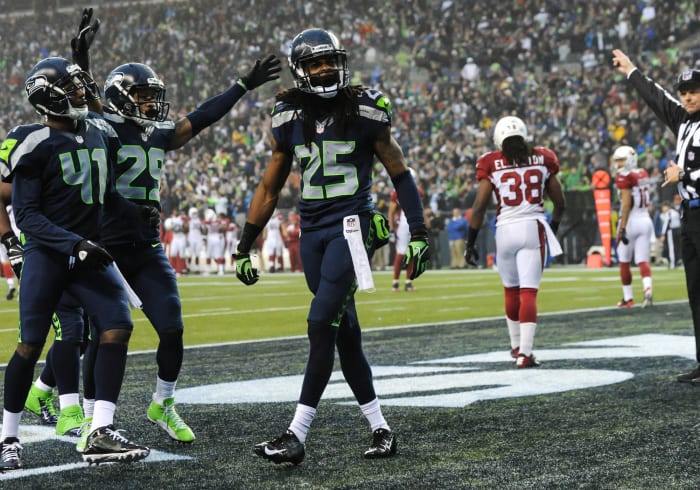
Arguing team of the past decade should not be difficult. After DVOA ranked the 2012 Seahawks first, the '13 squad -- built around the contract of historic draft find Russell Wilson -- dominated a record-setting Broncos offense in Super Bowl XLVIII. The Seahawks may have formed a three-Hall of Famer defense -- with Bobby Wagner, Richard Sherman, and Earl Thomas becoming homegrown stars -- to support Wilson. Super Bowl XLIX's catastrophic ending prevented a Seattle dynasty, however, and the rest of the Legion of Boom's Pacific Northwest time together swerved into "what if?" territory.
New England Patriots, 2009-19
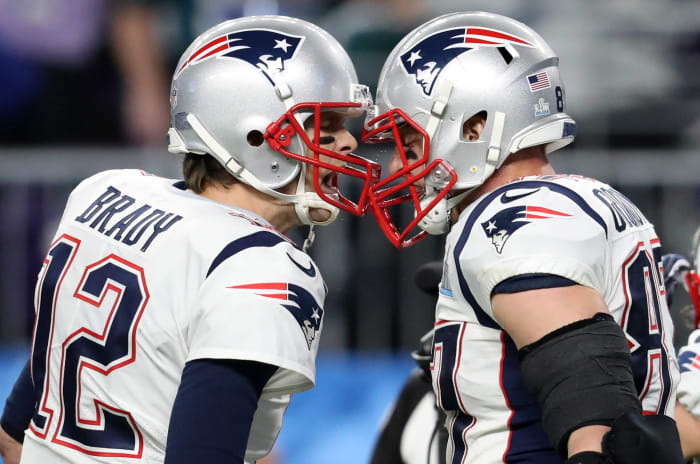
The Patriots not only re-routed those Seahawks, but they also halted the Steelers, Jaguars, and Falcons and kept playing in Super Bowls. New England's 11-year AFC East title streak is incredible, and the rest of the division's struggles allowed the Pats to keep securing vital playoff byes -- nine straight from 2010-18. This Brady version was more consistent than the one that piled up rings in his 20s. Belichick's presence and Rob Gronkowski's arrival tilted the odds for the QB icon. The Pats are one of three teams to advance to three straight Super Bowls, and their rally against Atlanta gave this dynasty unassailable cred.
Kansas City Chiefs, 2015-23
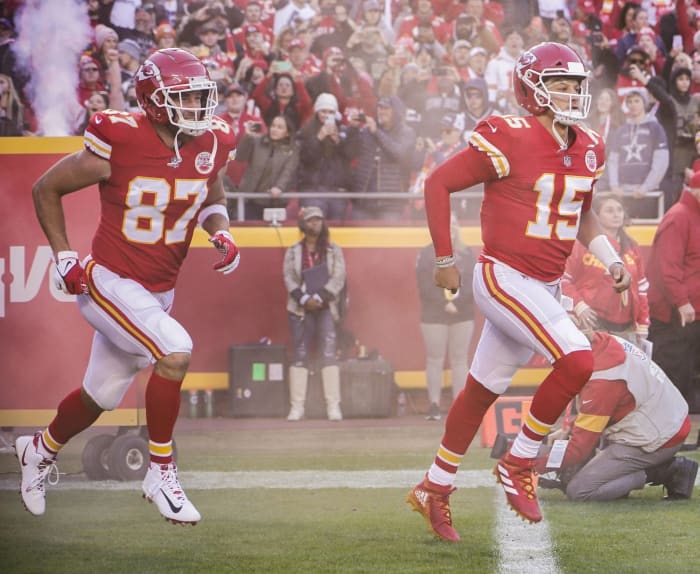
The Andy Reid-Alex Smith tandem began this climb; Patrick Mahomes' predecessor will probably be a footnote by the time this streak ends. The Chiefs' first Round 1 QB pick in 34 years, Mahomes transformed the franchise from fringe contender to the AFC alpha. Mahomes, Travis Kelce, and Tyreek Hill rampaged through the conference from 2018-20, and Kansas City has hosted an unprecedented five straight conference title games. Joe Burrow stunned the Chiefs in 2021, but a retooled squad -- after taking the risk of trading Hill -- avenged the loss en route to Mahomes' second ring. Steve Spagnuolo's defense then powered an oft-questioned '23 Chiefs squad to a repeat title.
Buffalo Bills, 2019-23

After taking a step back in 2018, the Sean McDermott-Brandon Beane operation laid the foundation in that draft by trading up twice for Josh Allen. By the high-ceiling prospect's second season, Buffalo was back in the playoffs. In 2020, the Bills acquired Stefon Diggs from the Vikings. This catalyzed Allen's ascent, rocketing him toward a franchise-elevating presence. The dual-threat phenom has two top-three MVP finishes and has kept an injury-prone Bills team atop the AFC East. Since Tom Brady's 2020 New England exit, Buffalo has won four division titles and has gone 48-18 in the 2020s. The Bills have been unable to turn their Arrowhead Stadium success into a Super Bowl berth, however.
Sam Robinson is a sportswriter from Kansas City, Missouri. He primarily covers the NFL for Yardbarker. Moving from wildly injury-prone sprinter in the aughts to reporter in the 2010s, Sam set up camp in three time zones covering everything from high school water polo to Division II national championship games
More must-reads:
- Jerry Jones, Cowboys avoid repeating Micah Parsons mistake with record extension for two-time Pro Bowler
- Chiefs have surprising stance on Tyreek Hill trade
- The '200-passing yards in first 20 NFL games' quiz
Breaking News
Trending News
Customize Your Newsletter
 +
+
Get the latest news and rumors, customized to your favorite sports and teams. Emailed daily. Always free!
PRIVACY POLICY EDITORIAL POLICY CONTACT US
ABOUT YARDBARKER TERMS OF SERVICE
Use of this website (including any and all parts and
components) constitutes your acceptance of these
Terms of Service and Privacy Policy.
This site is for entertainment purposes only.
There is no gambling offered on this site.
Gambling Problem? Call 1-800-Gambler.
